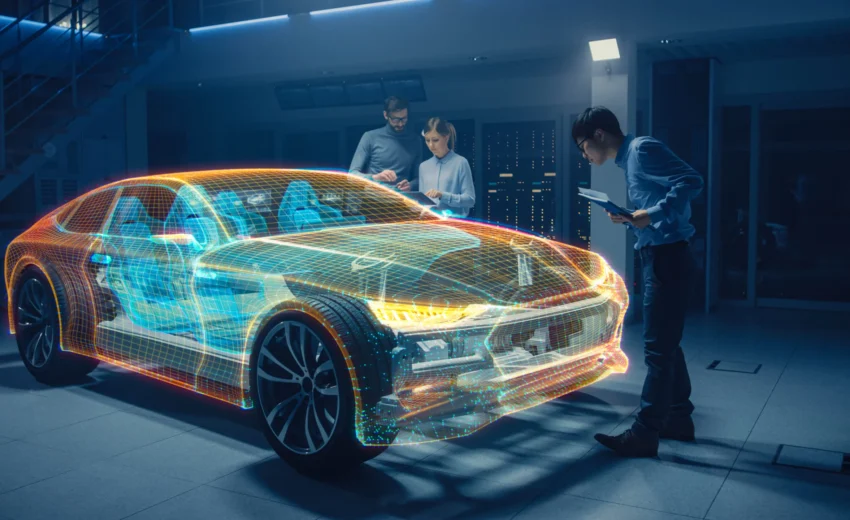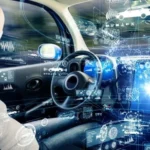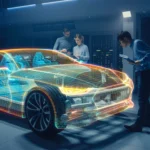
The automotive industry is at a crossroads, poised for a transformation that will redefine how we think about transportation. From electric vehicles (EVs) to autonomous driving and connected car technologies, the future of mobility is being shaped by a wave of innovation that promises to make our roads safer, cleaner, and more efficient. As we look ahead, it’s clear that the automotive world is not just evolving—it’s undergoing a revolution.
The Rise of Electric Vehicles
One of the most significant trends reshaping the automotive industry is the rapid adoption of electric vehicles. With concerns over climate change and the push for sustainability, governments and consumers alike are embracing EVs as a cleaner alternative to traditional internal combustion engine (ICE) vehicles. Major automakers, from Tesla to Volkswagen and General Motors, are investing heavily in EV production, with many pledging to phase out gasoline-powered cars entirely in the coming decades.
Advancements in battery technology are at the heart of this shift. Lithium-ion batteries, once expensive and limited in range, are now more affordable and capable of powering vehicles for hundreds of miles on a single charge. Innovations like solid-state batteries and fast-charging infrastructure are further accelerating the transition to electric mobility, making EVs a practical choice for everyday drivers.
Autonomous Driving: The Future of Mobility
Another game-changing trend is the development of autonomous driving technology. Self-driving cars, once the stuff of science fiction, are now a reality, with companies like Waymo, Tesla, and Cruise leading the charge. These vehicles rely on a combination of sensors, cameras, and artificial intelligence (AI) to navigate roads, avoid obstacles, and make real-time decisions.
While fully autonomous vehicles are not yet mainstream, advanced driver-assistance systems (ADAS) are already enhancing safety and convenience for drivers. Features like adaptive cruise control, lane-keeping assist, and automated parking are becoming standard in many new vehicles, paving the way for a future where cars can drive themselves.
The potential benefits of autonomous driving are immense. From reducing traffic accidents caused by human error to improving mobility for the elderly and disabled, self-driving technology has the power to transform society in profound ways. However, challenges such as regulatory hurdles, cybersecurity concerns, and public acceptance must be addressed before autonomous vehicles can become ubiquitous.
Connected Cars and the Internet of Things (IoT)
The concept of the connected car is another trend reshaping the automotive landscape. Modern vehicles are increasingly equipped with internet connectivity, allowing them to communicate with other cars, infrastructure, and even smart devices. This connectivity enables a range of features, from real-time traffic updates and remote diagnostics to over-the-air software updates that keep vehicles running smoothly.
The integration of cars into the Internet of Things (IoT) ecosystem is also opening up new possibilities for smart cities. Imagine a future where traffic lights communicate with vehicles to optimize traffic flow, or where cars can automatically find and pay for parking spaces. These innovations promise to make transportation more efficient and reduce the environmental impact of driving.
Sustainability and Circular Economy
As the automotive industry evolves, sustainability is becoming a central focus. Beyond the shift to electric vehicles, automakers are exploring ways to reduce the environmental impact of manufacturing and end-of-life vehicle disposal. The concept of a circular economy, where materials are reused and recycled, is gaining traction in the industry.
For example, companies are developing methods to recycle EV batteries, extracting valuable materials like lithium and cobalt for reuse in new batteries. Additionally, the use of sustainable materials, such as bio-based plastics and recycled metals, is becoming more common in vehicle production. These efforts are not only good for the planet but also resonate with environmentally conscious consumers.
The future of the automotive industry is full of promise, but it is not without challenges. The transition to electric and autonomous vehicles requires significant investment in infrastructure, from charging stations to smart road systems. Regulatory frameworks must evolve to keep pace with technological advancements, ensuring safety and fairness in this new era of mobility.
Moreover, the industry must address concerns about data privacy and cybersecurity as vehicles become more connected. Building trust with consumers will be critical to the widespread adoption of these new technologies.
Despite these challenges, the automotive industry is on the brink of a new era. The convergence of electric power, autonomous driving, and connected technologies is creating a future where transportation is safer, cleaner, and more efficient than ever before. As we drive into tomorrow, one thing is certain: the automotive world will never be the same.

Imad Ahmad Ali





